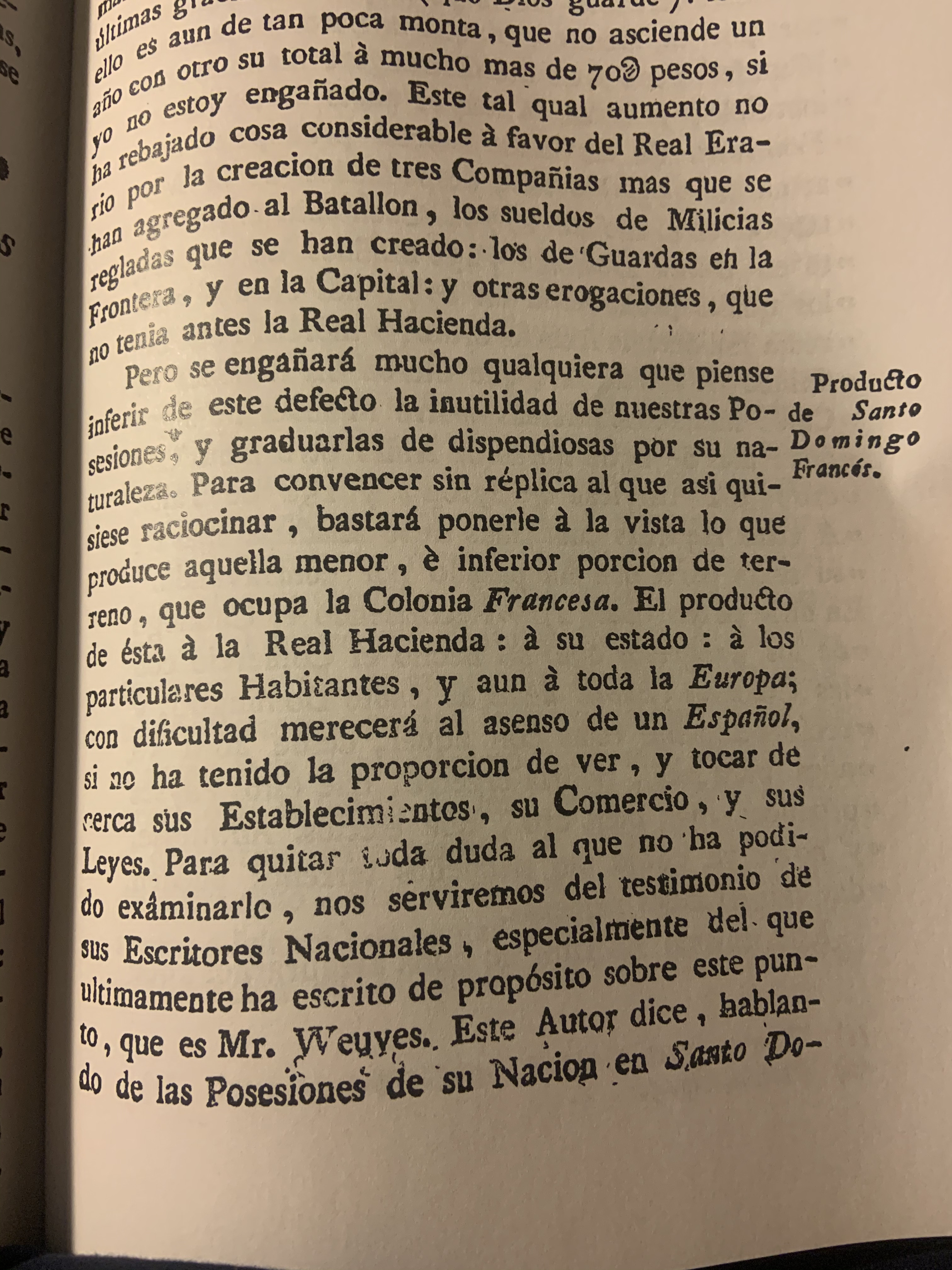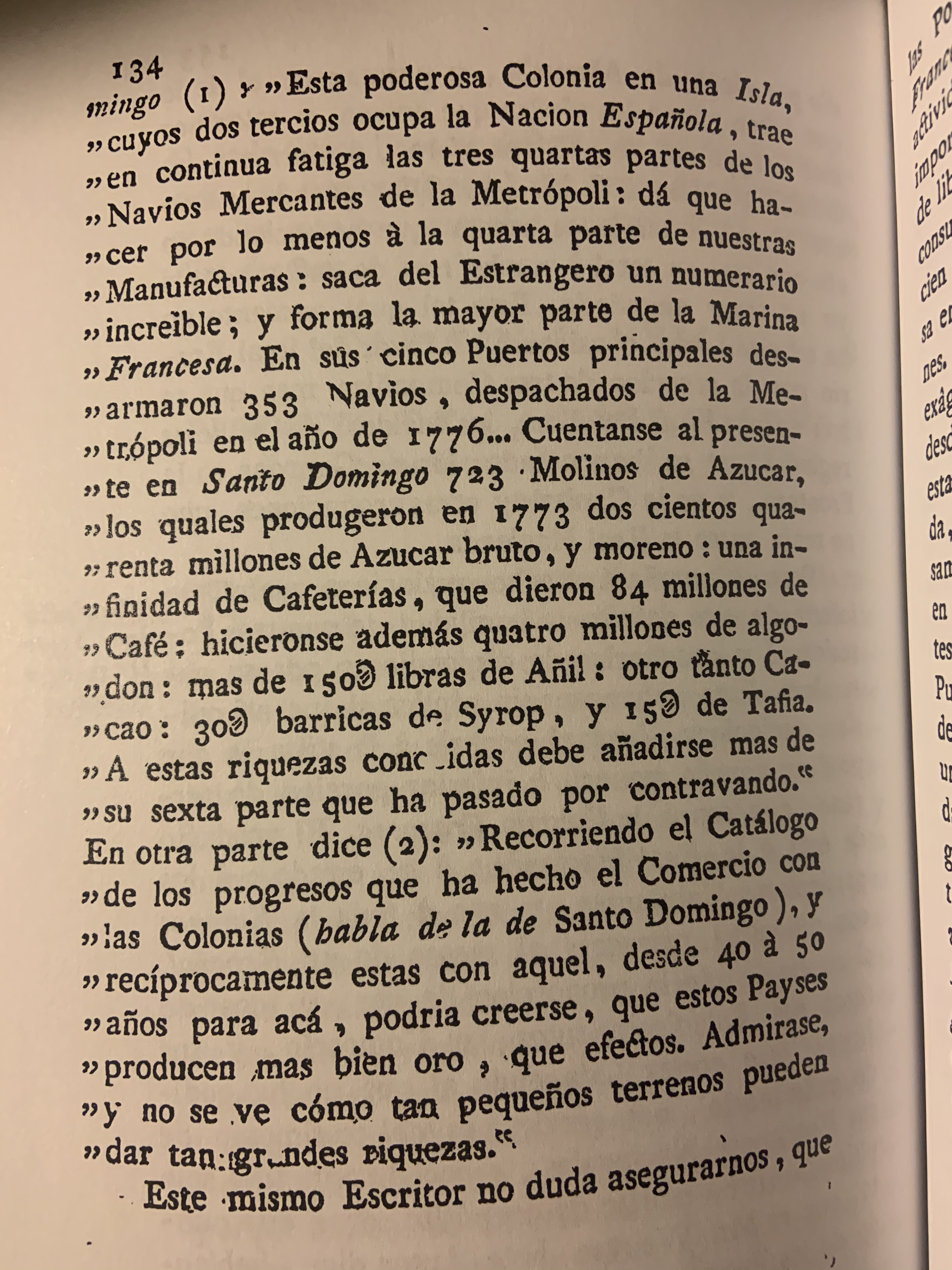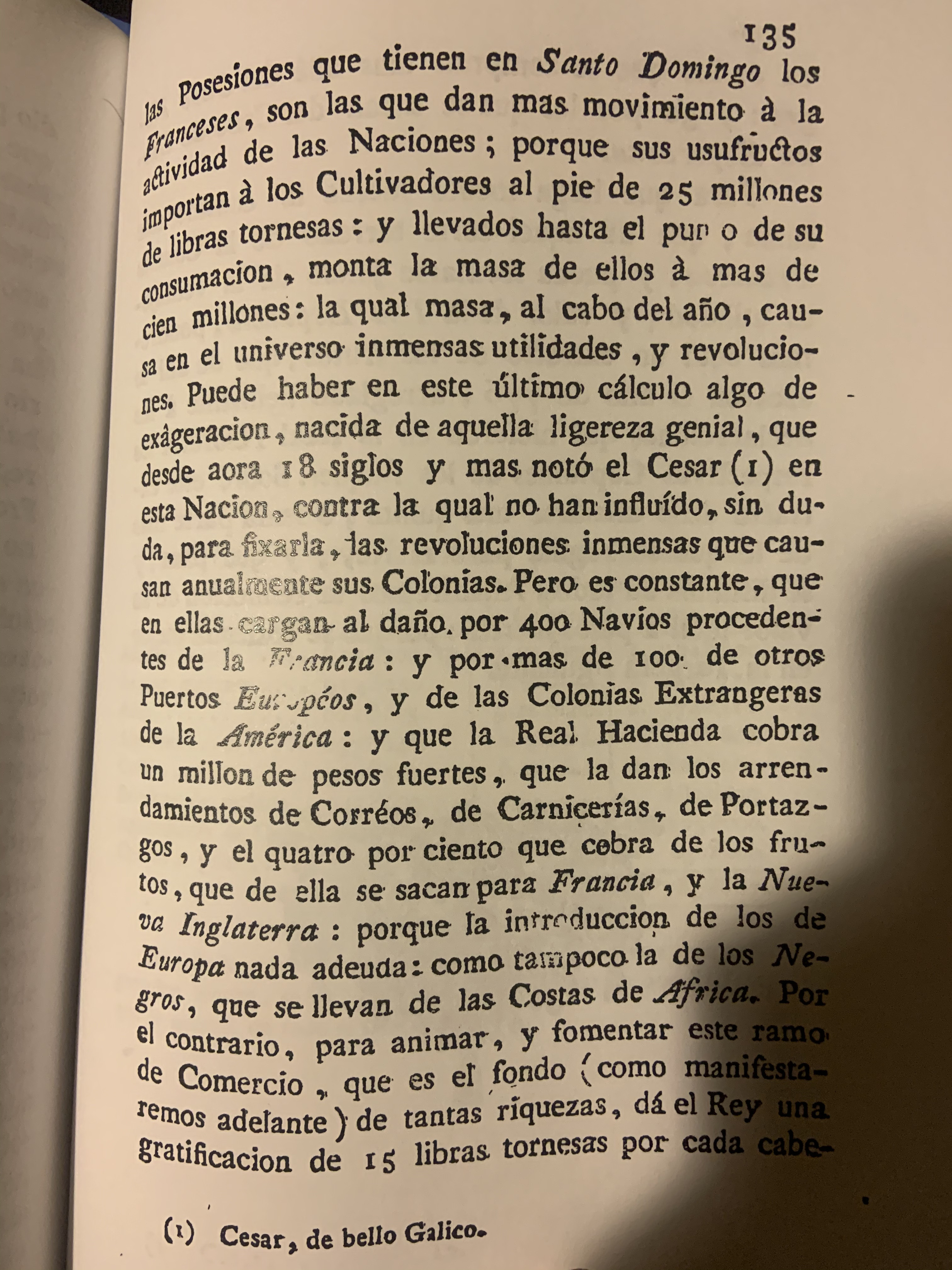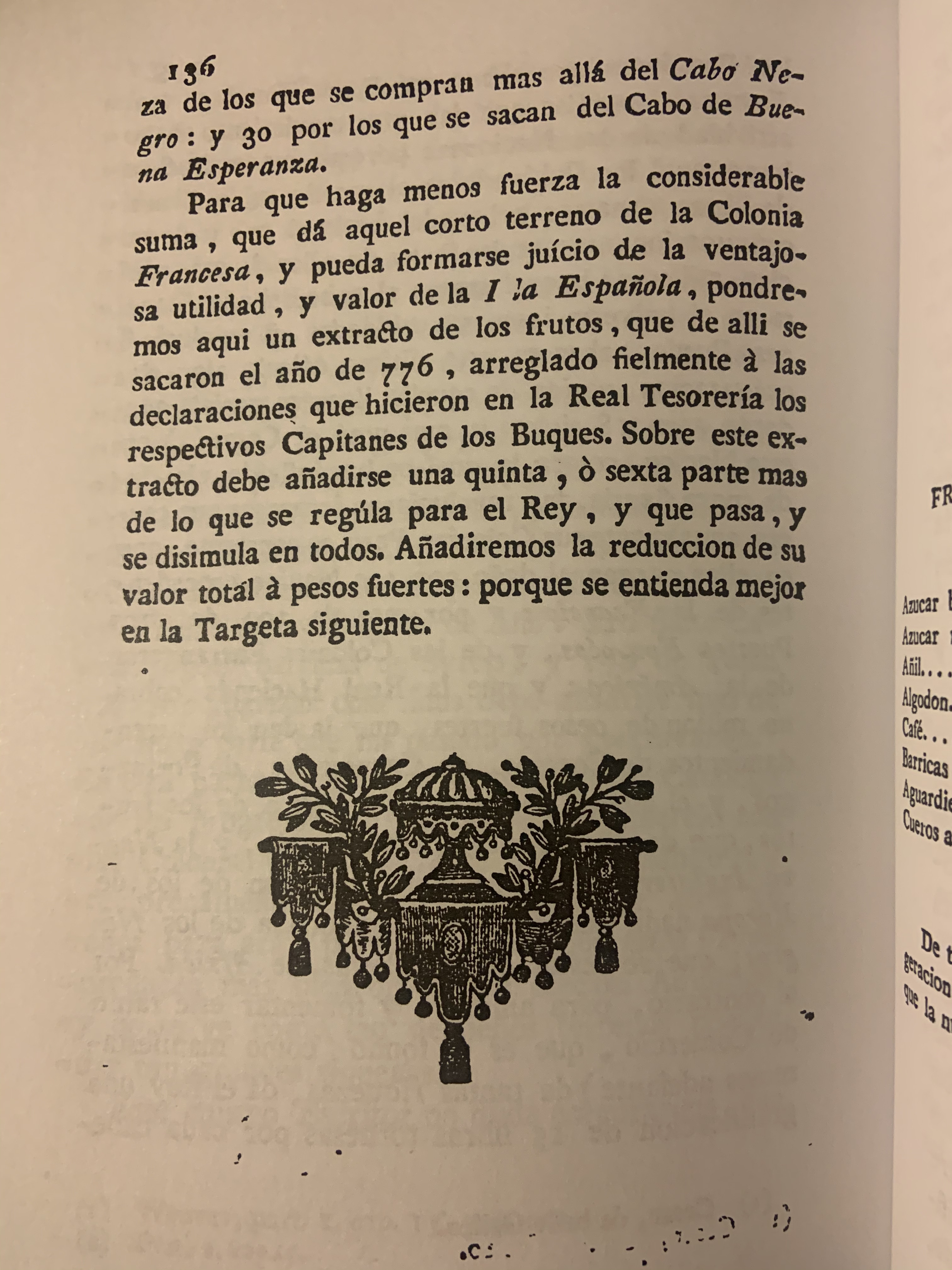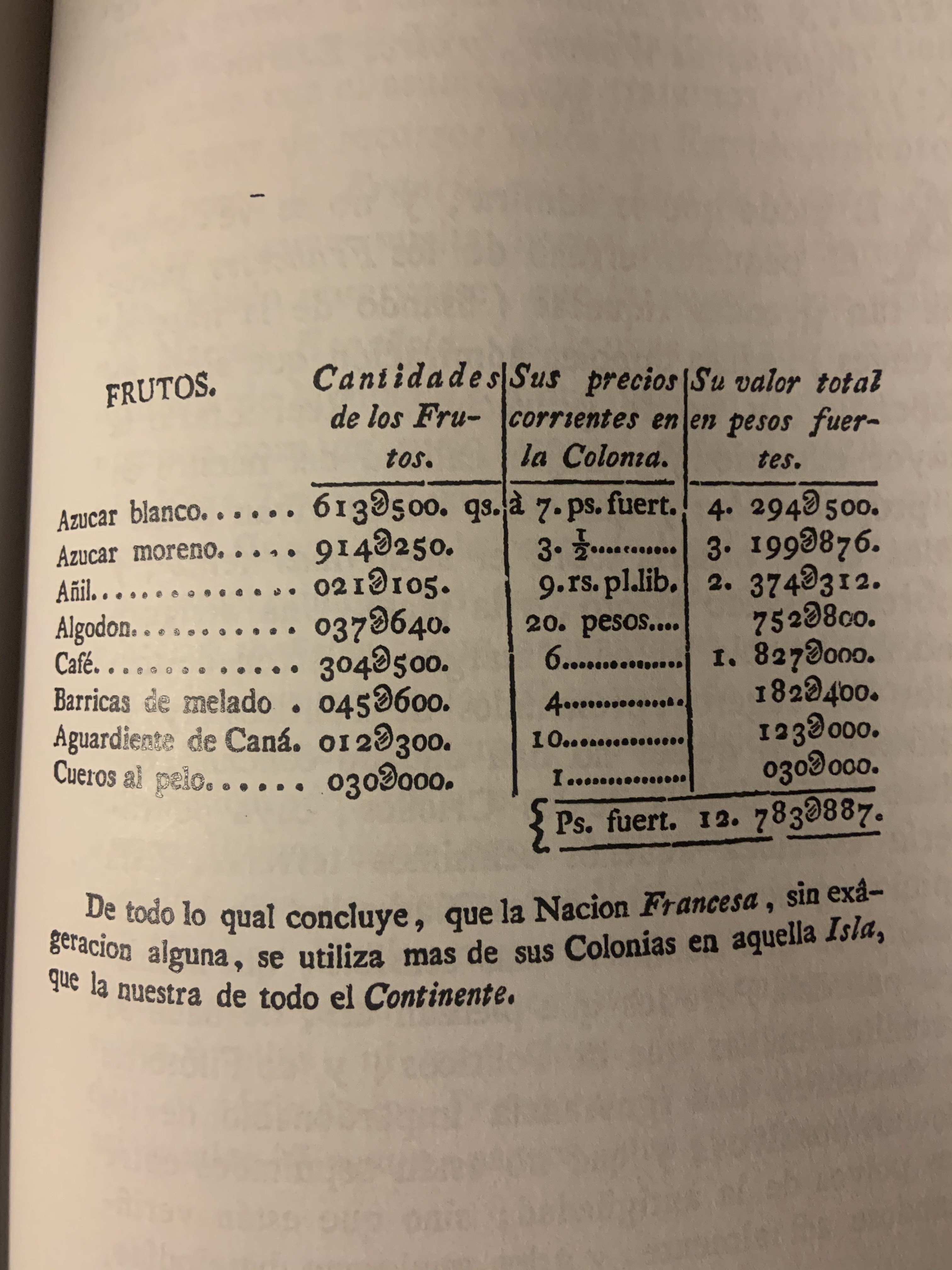Ironically, the first appears in the following book "
Idea del valor de la Isla Española, y utilidades que de ella puede sacar su monarquía" by Antonio Sánchez Valverde in 1785. I say ironically, because 99% of the book has nothing to do with that side of the island. lol
I'm not going to translate all of this word for word, but he cites a Mr Weuves, a French colonist in Saint-Domingue, of his writings about the production of Saint-Domingue at that time. It's written in the Spanish from that era, before the written aspect of the Spanish language was standardized. So some words are written different from today.
P. 133
P. 134; the sentences with the quotes are citations from Mr Weuves book.
Translated from the citation part in page 134, Saint-Domingue accounted for:
- 66% of the merchant boats of France.
- Produces demand for at least 25% of France's factories.
- Forms most of the French Marines.
- In 1776 the five ports of Saint-Domingue received 353 boats from France.
At that moment, Saint-Domingue had:
- 723 sugar mills thst in 1773 produced 240 million of white and brown sugar.
- Large amount of coffee estates thst produced 84 million
- Cotton: 4 million
- Indigo: 150,000 lbs
- Cacao: 150,000 lbs
- 30,000 barrels of syrup (doesn't say what kind)
- 15,000 of tapia (a type of rum)
In addition to this, the sixth part of its total production is contraband.
P. 135
Saint-Domingue's production is what animates the trade of all the other nations.
Around 400 French boats arrive at its ports every year and about 100 boats from other European and from the Americas ports.
P. 136
French government grants duty free 15 lbs for each [blacks] head bought in "Cabo Negro" (has to be somewhere in the northwestern coast of Africa) and the "Cape of Good Hope" (still named like that in modern South Africa, I don't think this produced much for Saint-Domingue).
P. 137
Under the table it says "with no exaggeration, the French nation produces more from its colony in that island than Spain's colonies which spans an entire continent."
---
Except for this one, I have found tables on the productions of Haiti as a country in various times in the 1800's, but not of Saint-Domingue. I'll check the other books tomorrow and whatever I find I'll post it here. Apparently, I will be checking Dominican books too. As this one proves, you never know what you will find. lol




